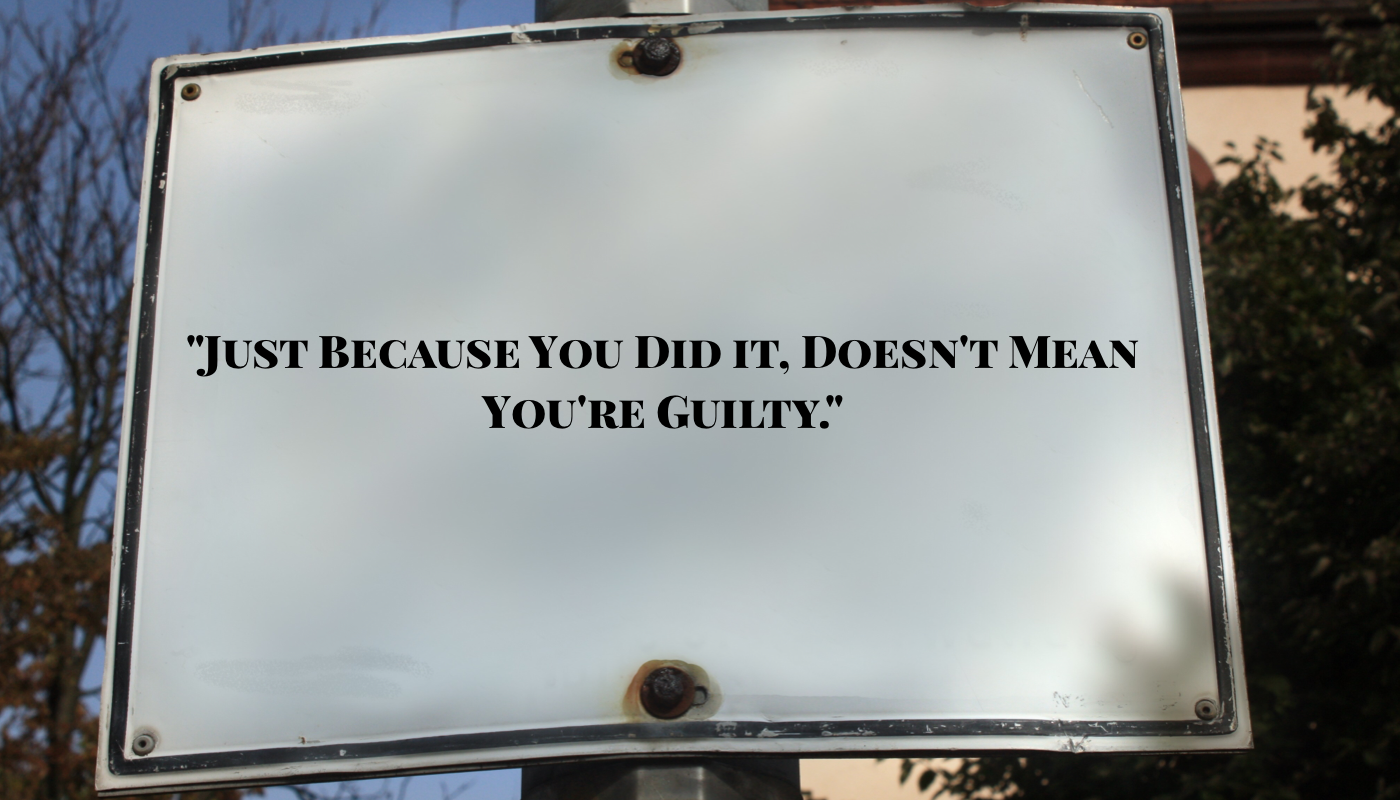
Just because you did it, doesn’t mean you’re guilty!

A controversial attorney’s billboard with a headline that reads “Just because you did it doesn’t make you guilty” has been making its rounds on the internet lately. Many have criticized it as being insensitive, professionally unethical and morally dubious. Look, I’m not a billboards type of guy and have more of a traditional view of lawyer marketing, but I feel compelled to write about this from a legal perspective because I believe the message is misunderstood.
Our criminal justice system relies on fundamental principles that help preserve our free society. Two of the principles are particularly applicable in this context: 1) You are innocent until proven guilty, and 2) You are only guilty if the prosecution can prove each and every element of the crime beyond a reasonable doubt.
In US courts, when juries sit down to deliberate, they are given the following law (in relevant part): “Proof beyond a reasonable doubt is proof that leaves you with an abiding conviction that the charge is true. The evidence need not eliminate all possible doubt because everything in life is open to some possible or imaginary doubt.” In trying to contend with circumstantial evidence, the jury is also told that if they can draw two or more reasonable conclusions from the circumstantial evidence, and one of those reasonable conclusions points to innocence and another to guilt, they must accept the one that points to innocence. Beyond-a-reasonable-doubt is the highest burden in our entire legal system.
Every single criminal defense attorney has been asked: “how can you defend someone that is guilty or has committed such a heinous crime?” I often answer that I’m not defending what the person is accused of doing (unless an affirmative defense applies such as self-defense). I’m defending their rights as afforded by the Constitution. I am making sure that the government plays fair and that my client gets the best possible outcome in light of the law and the circumstances. So how does this defense of my profession relate to the billboard that so many are up in arms about? The word guilty has a special meaning in a court of law, different than the way “guilty” is used in common parlance. Guilty in our criminal justice system means that the prosecution can meet their burden of proof. It has nothing to do with what actually happened. So if a tree falls in a forest and no one is around to hear it, guess what? It doesn’t make a sound.
There are many books written about the philosophy behind ethics and the law. But when people talk about our country as free, that necessarily includes the protection of each citizen against government abuse and that is at the heart of the beyond-a-reasonable-doubt burden. There are countries that require the accused to prove their innocence. Have you ever thought of trying to prove a negative?
Maybe the issue is that the lawyer’s message requires explaining, which means that it’s probably not appropriate for a billboard. But it is important for the general public to understand the legal definition of guilty, especially for when these members of the public serve on juries. The beyond-a-reasonable-doubt burden is the ultimate protector of our freedom from the government- both for a person who may have actually done it and one who is totally innocent.
An Op-Ed by Stefano L. Molea, Esq
This website should not be construed as the giving of legal advice or the formation of an attorney-client relationship. Results of a case will vary based on the facts, circumstances, and legal issues involved. All cases must be properly reviewed prior to determining applicable law and likely conclusions.